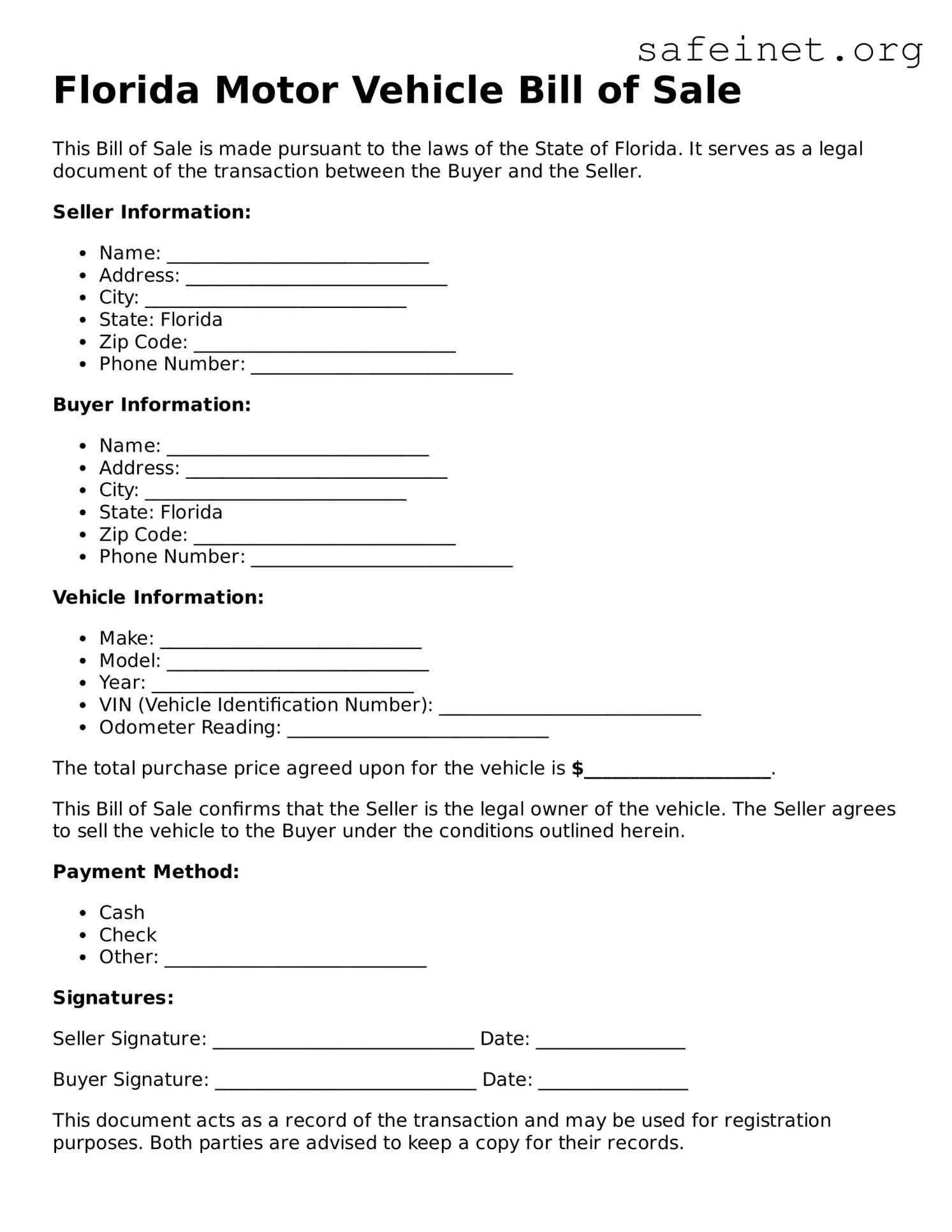What is a Florida Motor Vehicle Bill of Sale?
A Florida Motor Vehicle Bill of Sale is a legal document that records the transfer of ownership of a vehicle. It serves as proof that the seller has transferred their rights to the vehicle to the buyer. This document includes essential information such as the vehicle’s make, model, year, and Vehicle Identification Number (VIN), as well as details about the seller and buyer.
Do I need to have a Bill of Sale to sell my vehicle in Florida?
While Florida does not legally require a Bill of Sale to sell a vehicle, having one is highly recommended. It protects both the buyer and seller by providing a written record of the transaction. Additionally, the Bill of Sale can be crucial if any disputes arise later regarding the sale.
What information should be included in a Florida Motor Vehicle Bill of Sale?
A complete Bill of Sale should include the following details: the date of the transaction, the names and addresses of both the buyer and seller, a description of the vehicle (including make, model, year, and VIN), the sale price, and the signatures of both parties. Clear, complete information helps avoid any issues down the line.
Can I create my own Bill of Sale, or do I need a specific form?
You can create your own Bill of Sale, but ensure it includes all required information. However, using an official form can simplify the process and ensure that all necessary elements are covered. Many online templates comply with Florida requirements and allow for a quick and easy transaction.
Is there a fee for obtaining a Bill of Sale in Florida?
No, there is no fee to create a Bill of Sale. However, if you choose to obtain a template from a legal provider or a website, there may be a cost associated with that service. Overall, drafting your own form can be done without any charges.
Do I need to file the Bill of Sale with the state?
You do not need to file the Bill of Sale with the state of Florida. However, you should keep a copy for your records. The buyer will need this document when they register the vehicle and transfer the title. Ensuring all parties retain their copies is crucial for establishing proof of the transaction.
